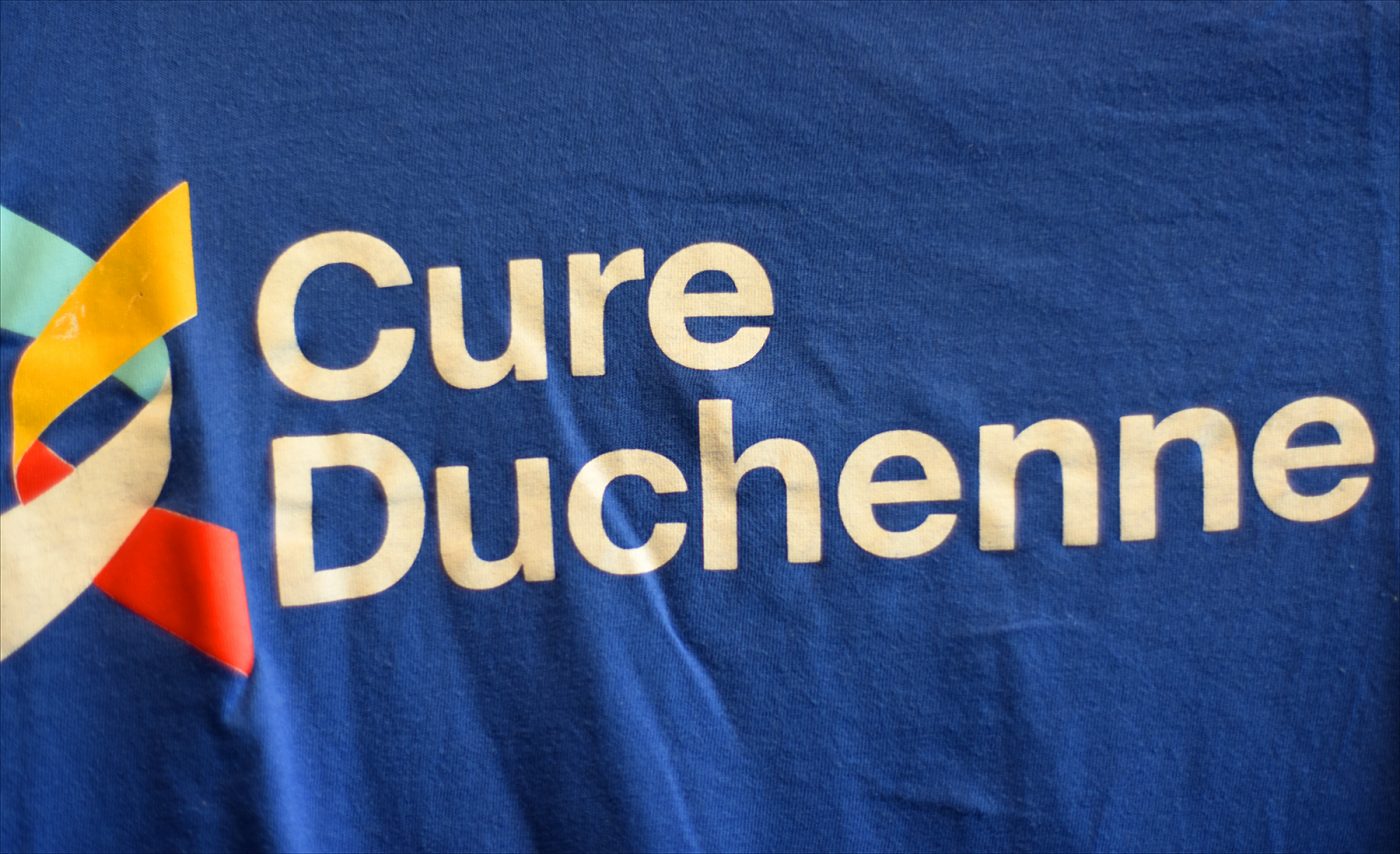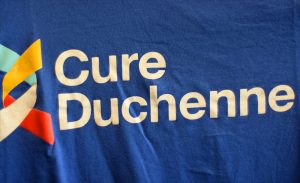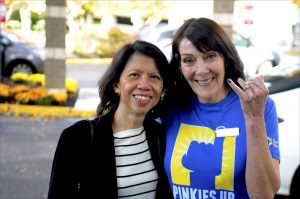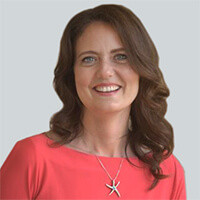CureDuchenne Plans Oct. 11-13 ‘Futures’ Meet at California’s Disneyland

CureDuchenne T-shirt for sale.
About 700 people have registered to attend CureDuchenne’s Futures conference taking place Oct. 11-13 in suburban Los Angeles — more than six times the number of participants at the November 2018 Futures meeting near Boston.
The annual gathering, to be held at Anaheim’s Disneyland Hotel, will be the largest of the 30 regional and national events CureDuchenne has hosted across the nation so far in 2019.
“We have more name recognition now, and maybe the program itself is what’s motivating so many people to come,” said Tiffany Cook, who is coordinating this year’s Futures event. “I’ve tried to put it together in such a way that’s much more audience-based and less focused on lectures to really bring the community together.”
Cook, speaking with Muscular Dystrophy News Today by phone from her Dallas home, said “we’re closer than we’ve ever been to getting treatments. There’s a lot of hope, and our panels are focused on living and thriving with Duchenne, on ability rather than disability. These boys have Duchenne, but they absolutely have a future and are planning for it.”
According to CureDuchenne’s website, the organization has raised over $35 million since its establishment in 2003 by Debra and Paul Miller, whose son, Hawken, has the disease. It has leveraged $2.3 billion in follow-on funding for future programs from investors and biotech companies, and is currently funding 12 clinical trials in Duchenne.
Investing in Edgewise, Chameleon
On Sept. 27, CureDuchenne announced it was investing an unspecified amount of money in two companies developing therapies to improve the lives of Duchenne patients.
The charity’s investment in Edgewise Therapeutics will help the Boulder, Colorado-based startup develop small-molecule therapies to stabilize skeletal muscle. Such therapies will prevent muscles from getting as stressed and damaged over time, which will hopefully limit the muscle inflammation and fibrosis that subsequently occurs.
Because this therapy does not target dystrophin directly, any patient with a dystrophin mutation could potentially benefit from it. If shown to be effective, it might also be used along with other therapies that do target dystrophin.
“I’m excited to see Edgewise Therapeutics secure this funding and move toward the clinic,” Barry Byrne, MD, PhD, director of the University of Florida’s Powell Gene Therapy Institute, said in a press release.
“Patients affected by DMD and BMD [Becker muscular dystrophy] are currently underserved, with limited treatment options,” said Byrne, who sits on the company’s board of directors. “Edgewise’s approach has the potential to benefit a broad population of muscular dystrophy patients and represents a new strategy for this devastating disease.”
CureDuchenne also will invest in Chameleon Biosciences of Berkeley, Calif. The company is developing its gene therapy EVADER technology platform, which aims to overcome the limitations of current adeno-associated-virus (AAV) gene therapy approaches.
Chameleon says this technology is potentially more resistant to pre-existing immunity, less immunogenic — meaning it does not exacerbate the immune system as much — to enable repeat dosing, and more efficient at gene delivery. The technology, therefore, would allow lower dosing.
“The support of CureDuchenne is greatly appreciated and extremely inspiring,” Genine Winslow, Chameleon’s founder and CEO, said in a press release. “CureDuchenne is an incredible organization, [and] their expertise in musculo-skeletal diseases and gene therapy will prove invaluable to us.”
‘DME Guide’ now online
Following a welcome reception on Friday, Oct. 11, the actual Futures conference begins early the next morning with a presentation by Peter Rosenbaum, MD. “Bringing the F Words to Life” will focus on six words beginning with the letter F: function, fun, fitness, family, friends, and future.
Highlights include an exon-skipping panel moderated by Leigh Ramos-Platt, MD, and featuring four other experts on the subject. Also on the agenda is a six-member gene therapy and gene editing symposium moderated by Casey Childers, MD.
On Sunday, Oct. 13, participants will hear from several more experts speaking on the importance of family and friends, wrapping up in the afternoon with a “message of hope” from Debra and Paul Miller, and a farewell picnic.
As with last year, the Futures conference features Brenda Wong, MD, a pediatric neurologist who runs the Duchenne Program at UMass Memorial Medical Center in Worcester, Mass. The clinic, launched in July 2018, offers integrated care for Duchenne patients through physical therapy, nutrition, social work, child life, and orthotics support.
Earlier this year, CureDuchenne launched the Durable Medical Equipment (DME) Guide — a comprehensive website to help take the guesswork out of finding the right mobility equipment for Duchenne patients.
“With a commitment to supporting the Duchenne community with best practices in care until a cure is found, we are thrilled to offer the online DME Guide to families,” Debra Miller said in a press release announcing the launch. “While parents and caregivers are determined to find the equipment that will help keep their loved ones active in any way possible, we are determined to help them make the best decisions by providing them with all the resources they need in one place.”
The DME Guide, to be updated regularly, offers information on wheelchairs, orthoses, home equipment and respiratory devices. It also features helpful links and downloadable information about equipment and proper use, as well as educational videos produced by CureDuchenne.
Erin Frey to head advocacy efforts
In other news, CureDuchenne has tapped Erin Frey as its first senior director of advocacy.
Frey, whose hiring was announced in August, will seek to build relationships and alliances that foster the health and outreach of CureDuchenne for families. She’ll also work with regulatory bodies, state legislatures, professional organizations, drug companies, and other advocacy groups.
“We are very excited to have Erin join our team,” Debra Miller said. “This is a new position at CureDuchenne, and we look forward to working with her to open new doors that lead to innovative ways to better serve all stakeholders in the Duchenne community.”
Frey has a bachelor’s degree in psychology from the University of Illinois-Chicago. She joins CureDuchenne from Baebies, a growth-stage startup company, where she facilitated national and regional newborn screening coalitions in an effort to expand such screening across the U.S.
“I came to know CureDuchenne over the past year and am excited to bring my expertise in advocacy to help advance the organization’s mission to find a cure for Duchenne and develop new programs that enhance care and services for the Duchenne community,” Frey said.
As an investor in Baebies, CureDuchenne worked closely with Frey to develop a Duchenne newborn screening program that is now being rolled out in hospitals across the country.










